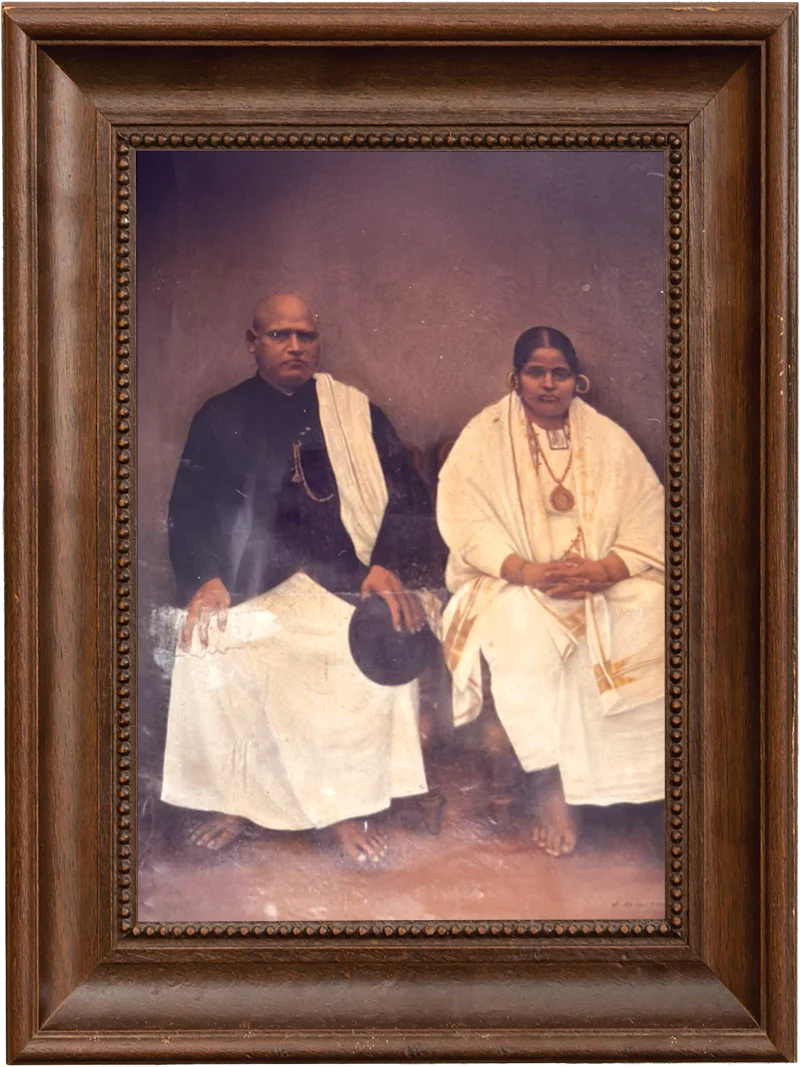
120 Years of Heritage
The Story of Mãi House
Mãi House, located in Fort Kochi (formerly part of British Kochi Desom), has its roots in the early 20th century. It was built in 1913 by Valiyaparambil Chandikunjan, a pioneering entrepreneur who played a significant role in shaping the industrial and social landscape of the region. Chandikunjan was one of the first in Kerala to manufacture wooden casks and barrels - vital for transporting liquids like wine, edible oils, and even petroleum. By the 1920s, his barrels were in high demand, particularly from overseas markets. During the First World War, this demand surged, and his reputation grew among British traders and officers of the East India Company.
To host these international guests, Chandikunjan built a guesthouse adjacent to his home. This space became a hub for trade discussions and cultural exchanges. Beyond business, he was a forward-thinking agriculturalist. He transformed large stretches of swampy land in Kadamakudy, Pallipuram, and Njarakkal into fertile paddy fields. He also partnered with the White Jewish community of Cochin to operate motorboat services, connecting the many islands that dot Kerala’s scenic backwaters.
A Century of Legacy, Sustained by Values
Explore Mãi House, a restored colonial residence that once hosted international trade and cultural exchange.
Chandikunjan was also deeply committed to public welfare and India’s freedom movement. A philanthropist and patriot, he donated land for the education of underprivileged children and actively supported the Swadeshi Movement. On December 14, 1905, when Lokmanya Tilak and Sir Jamsetji Tata launched the Bombay Swadeshi Co-operative Stores Co. Ltd., Chandikunjan became one of its first shareholders. The company aimed to promote Indian-made goods and support local artisans - a concept that evolved into The Bombay Store, which still operates today, including branch at Lulu Mall in Kochi. He also invested in early Indian enterprises such as Tata Oil Mills Ltd., established in 1917, demonstrating his commitment to building a selfreliant economy.
After his time, his son Manuel Chandikunjan carried forward the legacy. In 1939, Manuel donated a portion of this property to build a chapel for the local community and British residents in the area - a structure that remains active to this day. Today, the legacy continues through the fourth generation - Dr. Remy John and her daughter Dr. Sunitha John, both of whom are practicing doctors based in New Jersey, USA.
In 2019, the property - including six historic buildings - was leased to Liju Baby and Liji B. Katticaren, founders of the family-run hospitality group Ekaanta Leisure. With a vision to preserve its heritage, they began a detailed restoration and transformation of the property into a boutique heritage hotel. The result is Mãi House Heritage Hotel, named after the Portuguese word “Mãi”, meaning mother - a tribute to the nurturing values that sustained the family over five generations.
Today, the original 1913 residence features 9 uniquely designed bedrooms, 5 restaurants, A boardroom for private meetings and event spaces for curated cultural experiences. Historical elements have been carefully preserved and reimagined. The first-floor guest room, once used to host British traders, is now the hotel’s Board Meeting Room. The old firewood store has been converted into Mango Shower, a multi-cuisine restaurant offering modern dining in a rustic setting. From its humble beginnings to its modern transformation, Mãi House stands not just as a building, but as a living archive of Kerala’s industrial history, social reform, and cultural fusion.




